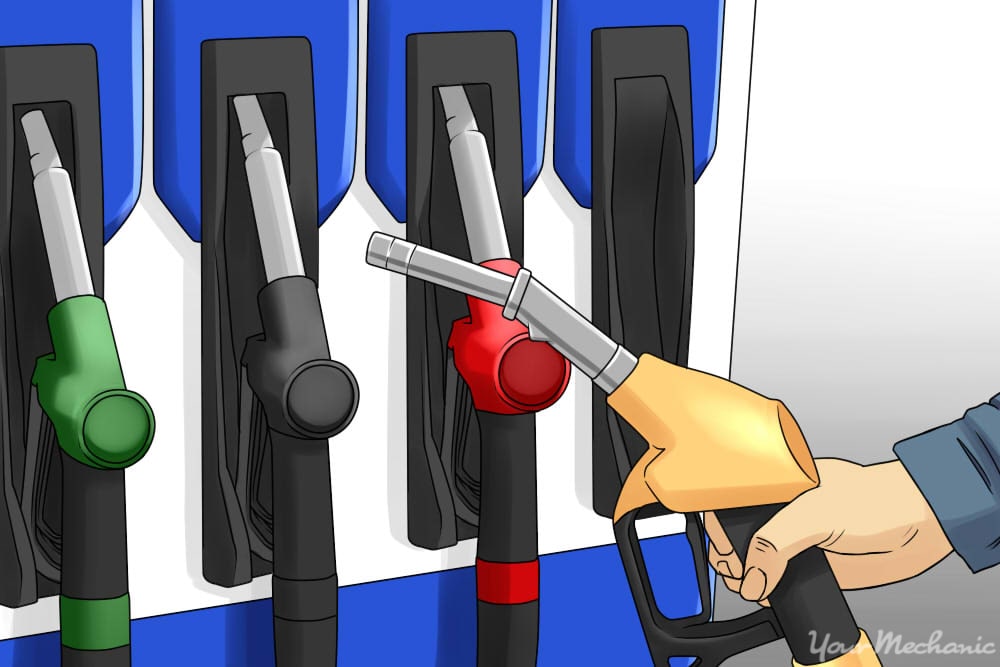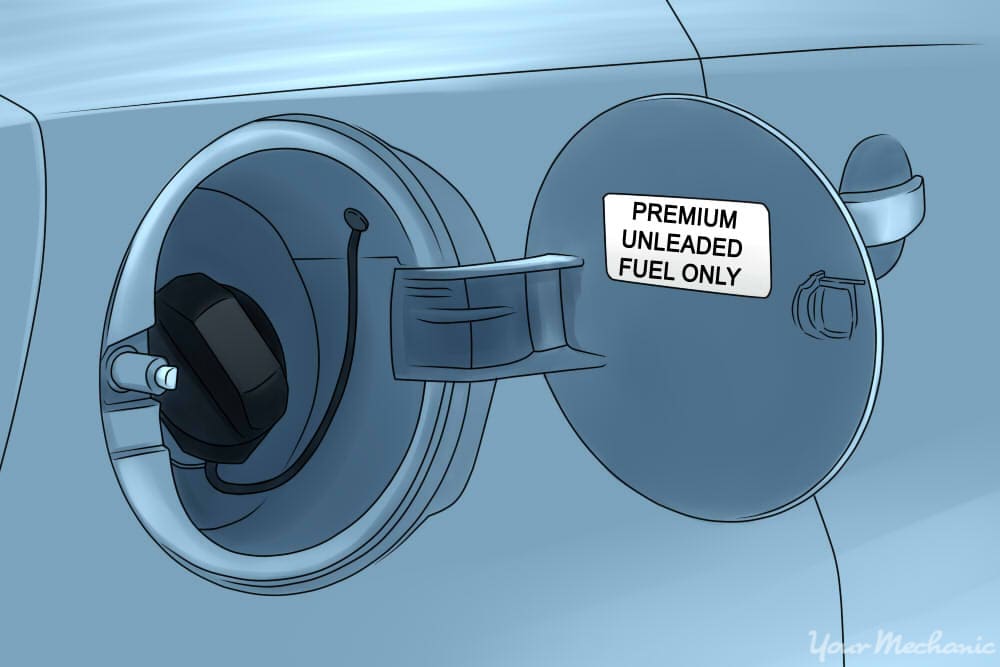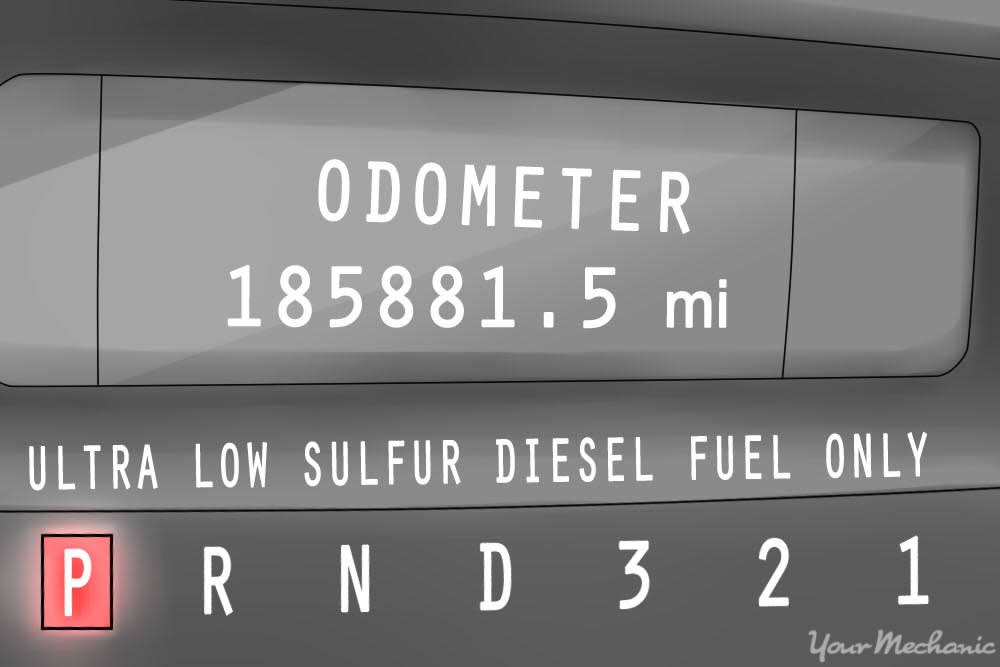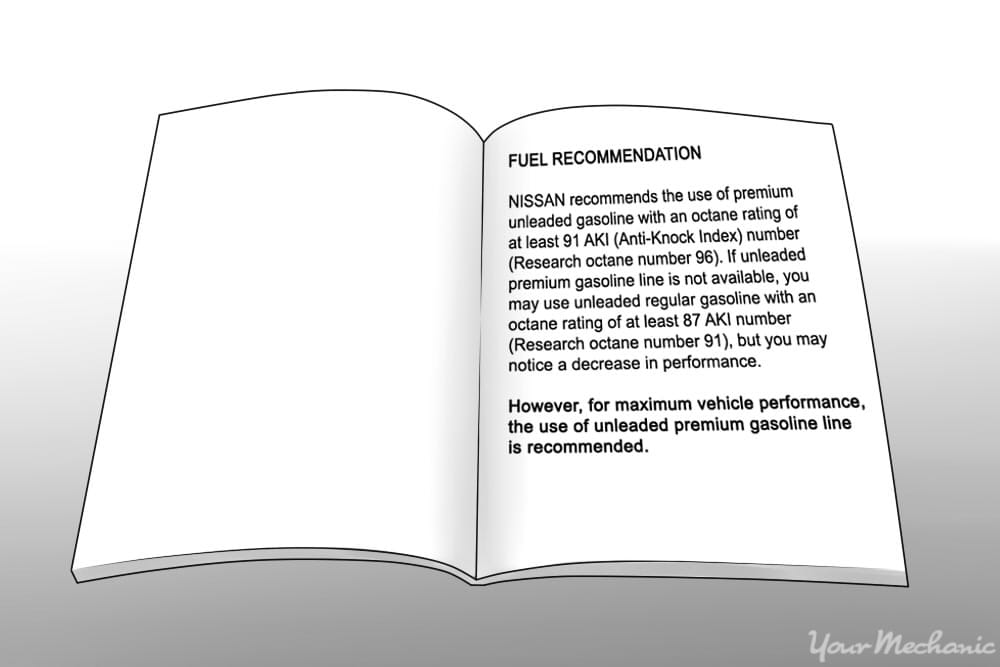

Your vehicle is propelled by a combustion engine. That means that fuel is injected into the engine’s cylinders in some fashion, where it combusts, or burns, to create downward force against a piston in the cylinder, turning a crankshaft in the engine. The transmission attaches to the back end of the crankshaft, where rotational power is converted into usable energy to the wheels.
The combustion engine relies on three things to operate:
- Air
- Fuel
- Ignition
If one of these things is missing, your engine will likely not run at all. Also, if the fuel you put in your vehicle is incorrect, it will not run. And, if you have a gasoline engine, you may require a certain grade of fuel for your engine to run properly.
Part 1 of 2: Determine the basic requirements
Before you fuel up your vehicle, you need to know which fuel pump to use. Does your car require diesel fuel or gasoline?
If you accidentally put diesel fuel in your gas-powered vehicle or vice versa, your engine will not run. The fuel in the tank will need to be drained, cleaned, and re-installed, and likely the engine’s fuel injection system will need to be cleaned before it works properly again. It can cost a lot of money to repair your vehicle if you put in the wrong type of fuel.
Step 1: Check the label inside the fuel door. Open the fuel door. If you have a release lever or button inside your car, release the door to check.
Look for a label on the fuel door or by the fuel filler neck.
You should find a label that says “Diesel Fuel Only” or “Unleaded Gasoline Only,” or similar wording.
The label can peel off or become unreadable, so proceed to the next step if you don’t see it.
Step 2: Check on your instrument cluster. Some vehicles have a warning on the instrument cluster by the fuel gauge regarding the type of fuel required.
- This usually pertains to vehicles other than gasoline-operated vehicles.
Step 3: Check your vehicle documentation. Check in your owner’s manual under the fluids and specifications section.
- Look on your vehicle build sheet for the type of engine. It will specify whether you have a diesel or gasoline-powered engine.
Step 4: Call your vehicle manufacturer’s support line. Ask an agent which type of fuel is right for your car.
- You’ll need to supply your year, make, and model, and the VIN number for the agent to accurately answer your question.
Part 2 of 2: Determine the correct grade of fuel
Diesel fuel usually only has a single grade of fuel available at fuel stations, making your choice for diesel simple. Gasoline isn’t quite as easy as there are often three choices for you to select from at the gas station: regular, mid-grade, and premium.
Step 1: Find the correct grade. Check your vehicle for indications of the correct grade.
Some vehicles require premium unleaded gasoline, while others may need regular grade.
Check on your fuel door for your specification.
If your vehicle states “premium gasoline required,” use only premium grade fuel for the optimum efficiency and operation.
If your vehicle says “premium gasoline recommended,” it will operate on regular grade fuel as well but may not operate quite as efficiently.
If your vehicle’s label indicates to use regular gasoline, you can likely use any grade, though it’s unlikely you’ll see much benefit, if any, from using higher grade fuels.
Step 2: Determine if you have a performance vehicle.
If you have a turbocharged or supercharged engine, you’ll typically need to use premium fuel to prevent engine ping.
If you have a high-horsepower engine, or a high-compression engine like such as an exotic sports car, premium fuel is normally used.
If you have an economy car or family sedan, or if your vehicle is a normal use vehicle like a pickup truck or SUV, you’ll typically need only regular grade gasoline.
Step 3: Listen to your vehicle. If your engine has an abnormal “pinging” or knocking noise when your engine is idling and you are using regular grade gasoline, you may need premium fuel.
Try an octane booster like Lucas Oil Octane Boost in your fuel to determine if the knock or ping is reduced.
If the octane booster helps to reduce your engine noise, use premium fuel at your next fuel fill.
While you figure out which type of fuel is optimal for your vehicle, make sure that the components that contribute to efficient fuel use are working properly. If your Check Fuel Cap light is on or if your fuel door won’t close, call a qualified mechanic to check them out for you so you don’t run into any larger issues down the road.






